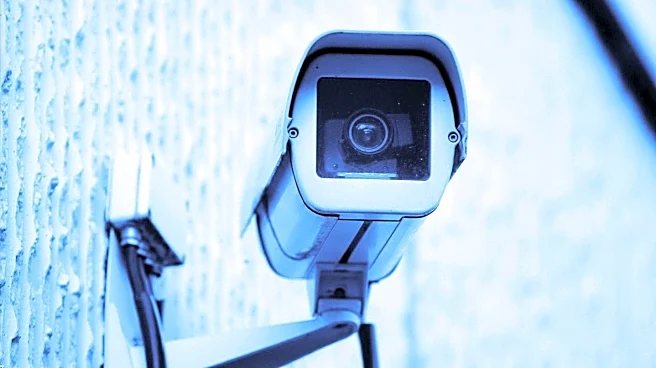What's Happening?
Drones have become a transformative tool in modern agriculture by 2025, significantly enhancing precision, efficiency, and sustainability. These unmanned aerial vehicles (UAVs) are equipped with advanced sensors, high-resolution cameras, and GPS technology, allowing farmers to capture detailed, real-time data over large agricultural areas. This technology enables precision agriculture, where drones provide detailed monitoring and tailored farming practices, helping to combat yield loss and reduce environmental impacts. Key innovations include precision crop health monitoring, smart precision spraying, advanced soil analysis, autonomous seeding, and real-time pest detection. These advancements are set to revolutionize agricultural practices and data collection, making drones indispensable in modern farming.
AD
Why It's Important?
The integration of drones in agriculture is crucial as it addresses the growing need for increased yields, optimized resource use, and improved sustainability. By providing precise data on soil health, crop stress, and pest outbreaks, drones enable rapid, informed decisions, reducing manual labor and operational costs. This technology supports targeted application of water, fertilizers, and pesticides, minimizing waste and chemical runoff, thus protecting ecosystems. The cost-effectiveness and efficiency of drones make them accessible to both large and small farms, enhancing productivity and environmental stewardship. As global food demand rises, drones offer a practical solution to meet these challenges sustainably.
What's Next?
Looking ahead, the adoption of drones in agriculture is expected to expand, with greater autonomy and deeper AI integration enhancing real-time analysis and predictive insights. Drones will increasingly be part of holistic farm ecosystems, working alongside satellites, IoT sensors, and AI-driven analytics to optimize farming operations. The scope of drone applications will broaden beyond crops to include livestock monitoring and infrastructure maintenance. As technology evolves, even smaller farms will incorporate drones, revolutionizing food production and environmental management. Continued innovation and regulatory support will be key to overcoming challenges and maximizing the benefits of drone technology in agriculture.
Beyond the Headlines
The use of drones in agriculture also raises ethical and regulatory considerations, such as compliance with airspace and privacy laws. The initial investment and training required for effective drone operation can be barriers for some farmers. However, ongoing innovations and subscription models are helping to reduce these costs. The vast amount of data generated by drones necessitates robust platforms for storage and interpretation. As connectivity improves, especially in rural areas, the integration of drones with other smart farming technologies will become more seamless, driving the next frontier of precision agriculture.










